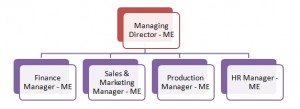A very murky crystal ball
A Very Murky Crystal Ball
January is generally a time to take stock and review the year ahead; to try and foresee what factors may affect our businesses, either positively, or negatively. We assess risk, i.e. what is the probability of an event occurring and what is the consequence if it does.
As Residual Value (RV) forecasters we go through the same process but our horizon is further out and we look at the factors influencing both sides of the market equation, supply and demand.
Supply:
Will last year’s sales boom continue?
Will impending deflation/stagflation in Europe tempt OEMs to push even more cars into the UK?
Will the economic climate prevent OEMs from increasing prices or, at least, reduce their size?
To change or not to change
What’s in a price
I have a (cunning) plan!
That was the favourite phrase of Baldrick (Tony Robinson) in a favourite of mine Blackadder.
I read a recent new article, http://www.bbc.co.uk/news/business-25909728, regarding how in India, Chander Prakesh Gurnani, was appointed to turn around an IT company which was on the point of collapse.
He had to undertake a reduction in staff but his plan to turnaround the company was to break it up into 11 streams to make it more manageable.
To sell or not to sell -That is the question!
I want to stir things up!
Selling and Networking do not go together!
But that is the reason to network, some people will say.
No it is not.
You are there to meet get to know people and build relationships.
From building a relationship business will follow.
It may start with someone asking your advice.
Give it freely.
Mastermind your way to success
 I belong to a Mastermind group and I’m surprised at how few people know about this as a means of developing your business. Everyone I know who has taken part in a Mastermind group over a period of time has got enormous value from them, so I thought I enlighten those of you who don’t know about them, or have heard about them and only have a vague idea of what they’re about.
I belong to a Mastermind group and I’m surprised at how few people know about this as a means of developing your business. Everyone I know who has taken part in a Mastermind group over a period of time has got enormous value from them, so I thought I enlighten those of you who don’t know about them, or have heard about them and only have a vague idea of what they’re about.
What value do you put on the advice you get from your business mentor?
And how do you show respect to your business mentor?
I was very interested to read the James Caan article in the Guardian newspaper recently (http://www.theguardian.com/small-business-network/2013/aug/28/business-mentor-tips-james-caan) about taking notice of your business mentor.
The first thing that sprang to mind is “I wonder how he defines mentor”. So many people seem to use the term interchangeably with coach and business advisor. (See my take on the differences here http://www.thebusinessbloggingnetwork.com/2011/03/should-you-choose-a-mentor-an-advisor-or-a-consultant-to-help-you-in-your-business-or-all-3/)
It always amazes me how some businesses invest a lot of time, effort and their hard earned cash in paying for help/ support/ advice and then completely ignore it. Or don’t share the knowledge throughout the organisation, so one area will be making great changes and the rest of the business fails to keep up with them.
So who or what qualities make a good mentor for you or your business?
Outsourcing, a good idea?
Outsourcing can be a great way to grow your business or it could be a way to destroy your business. Selecting the right people or company to outsource is important. You can take more work on by using contractors or temp staff, or offer more services by working with other companies. This can increase your business and is good for the people or businesses that you outsource to.
You can’t win them all
It is a fact of life you will not win every order that you bid/quote for, but it is not a total loss.
Try and gain some information on why you did not succeed this time. I may be purely on price, especially if you were offering an identical product to your competition.
However this is often not the case for the lost order and here are some possible reasons.
Sprats and Prats!
I thought this Blog posting I would share some of the frustrations that we all must feel when running and Building a Business, the problem of the Sprats and Prats!
What do I mean by Sprats and Prats? Well, especially if you are growing a new business, or a new area of your business, often at the beginning and the early stages you get lots of people who …well waste your time.
Either they are looking for something for nothing, or if you can get any money out of them, its like catching sprats when fishing, small, minuscule and below your true value leading you to think was it really worth it?
Documents represent your business as well
Have you opened the post to find a letter from a company and thought how terrible it looked? Maybe it looked like the letterhead was photocopied or the paper was cheap and like tissue paper. Or it could have been monotone (black print on the paper no colour). The print looked like the ink or toner was low.
Whatever it was you may have tossed the paper without reading or just gave a cursory glance. Any business has many faces, the people, the website, if there is a shop how the shop looks. People spend a lot of money on those things, but what about the paper that is send out or the presentations that are created?
What does your documents and presentations say about your business? Think about:
- Letterhead
- Reports
- Quotations
- Invoices
- PowerPoint presentations
- Proposals
60 Seconds to make an Impression!
Yes, we all do it, some dread it, others relish it, but its a necessary part of promoting our business, the 60 second “Elevator” pitch!
This is probably a topic that there have been millions of articles written about, so you may have heard some of this before, but in terms of communication if something is worth sharing, its certainly worth repeating.





Where do all the used cars go?
Where do all the used cars go?
788,424 new cars have been registered in the European Union within the first 6 months of 2014. This is the lowest number since the European Automobile Manufacturers Association started keeping track of this statistic. Nevertheless, the sheer number is still impressive. The question I ask myself, though, is what happens to all the used cars, because they aren’t all sold in their home countries?
We can understand why people buy new cars; they are not only more luxurious and safer but, also, more environmentally friendly. About the last point, however, you can have a long discussion. Is buying a new car actually beneficial for the environment? On one hand the average fuel consumption improves, while on the other the energy and resource-intensive production process has to be taken into consideration as well. The cars that disappear from our streets either go for scrap, or they are exported to another country. Exact figures, though, are not available. And yet those statistics are of great interest, if you think of our efforts to have a high retention of cars in the used market. The figures that are available show that, within the European Union, Germany is by far the biggest exporter of used cars. Where these used cars will be exported to is a matter of price. Read more... (733 words, 10 images, estimated 2:56 mins reading time)